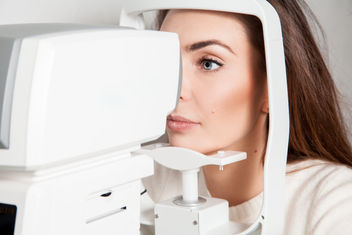A Guide to the Best Medication for Glaucoma
March 8, 2023Glaucoma is a chronic condition that can require lifelong treatment or even surgery. There are a number of medications to help manage glaucoma.

The Inside Rx Blog
Get the Inside Scoop on tips & tricks that may help your family save on prescriptions!
Subscribe to stay up to date with the latest news and tips
Glaucoma belongs to a group of disorders related to the optic nerves, which are the tissues responsible for sending visual information from the eye to the brain. The damage is often caused by increased pressure in the eye and usually occurs in older adults. There are four main types of glaucoma: open-angle, angle-closure, congenital and secondary.
Often glaucoma develops without any warning signs. Symptoms develop so gradually over the years that patients may not notice any change in their vision until the condition is already at its later stages. According to the CDC, around 3 million Americans have glaucoma, and half don't even know they have the illness. If it goes on untreated, glaucoma can cause blindness.
Continue reading to learn more about glaucoma and the best medication for glaucoma.
Who Is at Risk for Glaucoma?
Anyone can get glaucoma, but certain groups have a higher risk of developing the disorder. For example, individuals over 60 are more prone to the condition, and African Americans are significantly more likely to get glaucoma than other races. In addition, people with a family history of the disorder are also at increased risk.
Other risk factors include physical injuries near the eye area, eye anatomy, retinal detachment and eye tumors.

Vyvanse Coupon Guide 2025: How to Cut Your Prescription Costs

Chronic Kidney Disease: Warning Signs You Shouldn't Ignore

Seasonal Allergies Treatment: Simple Solutions That Bring Real Relief

Lost Your Job? Here's How to Get Prescriptions Without Insurance Today
How Glaucoma Is Diagnosed
Glaucoma is usually picked up during a routine eye check, but patients must undergo the following examinations to confirm the diagnosis:
- Tonometry (eye pressure test)
- Gonioscopy
- Visual field test
- Optic nerve assessment
After the patient completes the required assessments, doctors can finally advise on the best treatment options. Healthcare practitioners look into the condition's progression and the extent of damage the disorder has done to the eyes to recommend the best medication for glaucoma.
Glaucoma Medication: Most Commonly Prescribed
A patient's treatment plan will largely depend on their glaucoma type. However, the most commonly prescribed glaucoma medication comes from eye drops that help enhance fluid drainage from the eye, lowering pressure. Examples include:
| Generic Name | Brand Name |
|---|---|
| Latanoprost | Xalatan® |
| Travoprost | Travatan® |
| Tafluprost | Zioptan® |
| Bimatoprost | Lumigan® |
| Netarsudil | Rhopressa® |
| Latanoprostene | Vyzulta® |
| Pilocarpine | Isopto Carpine® |
Other eye drop types lower the fluid that the eye produces. The most common prescriptions are the following:
| Generic Name | Brand Name |
|---|---|
| Apraclonidine | Iopidine® |
| Brimonidine | Alphagan®, Qoliana® |
| Betaxolol | Betoptic® |
| Timolol | Betimol®, Istalol®, Timoptic® |
| Dorzolamide | Trusopt® |
| Brinzolamide | Azopt® |
Often, eye drops are sufficient to bring down the pressure. However, doctors can include oral medications in severe cases for a more effective treatment plan.
| Generic Name | Brand Name |
|---|---|
| Acetazolamide | Diamox® |
| Methazolamide | Neptazane® |
Depending on the extent of the condition, doctors may also recommend laser procedures to restore the patient's vision.
Types of laser treatment for glaucoma include:
- Laser trabeculoplasty: A laser procedure that opens the drainage tubes within the eye
- Laser iridotomy: A laser procedure that creates holes in the iris to allow fluid drainage
- Cyclodiode laser treatment: A laser procedure that destroys eye tissues that produce liquid to reduce pressure
There are indeed rare cases where treatment with glaucoma medication and laser aren't effective. In these scenarios, doctors recommend surgery which can be one of the following:
- Trabeculectomy: A surgical procedure that removes part of the eye-drainage tubes, allowing fluid to drain more easily.
- Trabeculotomy: Produces similar results with trabeculectomy, except the tube extraction is done with electric currents.
- Viscocanalostomy: This procedure removes part of the sclera (outer covering of the eyeball) to enhance eye fluid drainage.
- Deep sclerectomy: A surgical process that widens the drainage tubes in the eye.
- Trabecular stent bypass: A procedure where doctors place a tiny tube into the eye to increase drainage, reducing pressure.
How To Prevent Vision Loss
Glaucoma is incurable, but patients can take preventive measures to avoid vision loss. If you belong to a high-risk group, getting a regular eye exam can help identify the condition at its early stages. Prescription eye drops that specialists recommend can stop glaucoma from progressing.
Leading a healthy lifestyle can also protect your eyes from the disease. Maintaining a healthy weight, eating the right foods, controlling your blood pressure and being physically active are great habits to keep glaucoma at bay. When doing exercises, however, make sure to do them carefully. Intense physical activity can raise eye pressure, so exercising at a moderate pace is essential.
Ibuprofen
$ 5.45Atorvastatin Calcium
$ 7.84Get Potential Discounts on the Best Medication for Glaucoma With Inside Rx
For those diagnosed with glaucoma, it's critical to stick to your medications to preserve your vision. The treatment aims to lower eye pressure and prevent optic nerve damage. So if the patient fails to follow their prescription schedule, this can lead to the condition worsening.
Unfortunately, glaucoma is a chronic disease which means it requires lifelong treatment. Buying prescriptions for an extended period is costly for many patients, leading to poor medication adherence.
Thankfully, prescription discount cards can help reduce out-of-the-pocket costs for the best medication for glaucoma. An Inside Rx prescription discount card allows patients to buy prescription drugs at reduced rates. You can save up to 80% off brand and generic medications with Inside Rx.
Millions of people have already enjoyed the benefits of being an Inside Rx cardholder. We partner with over 60,000 pharmacies nationwide so more people can enjoy healthy savings. The best part about what we offer is that it is entirely free. Download an Inside Rx discount card now to start saving today!
Sources: